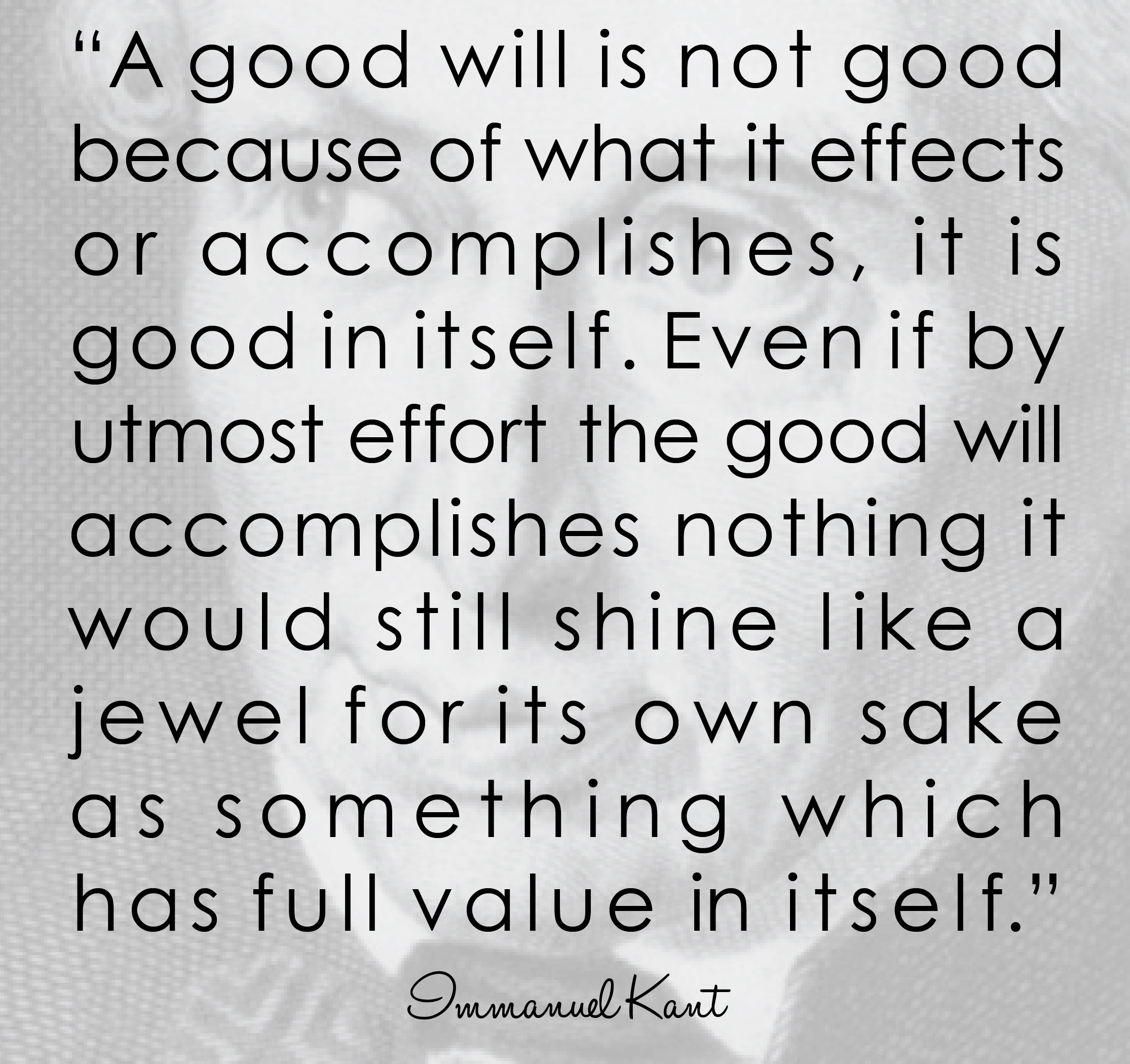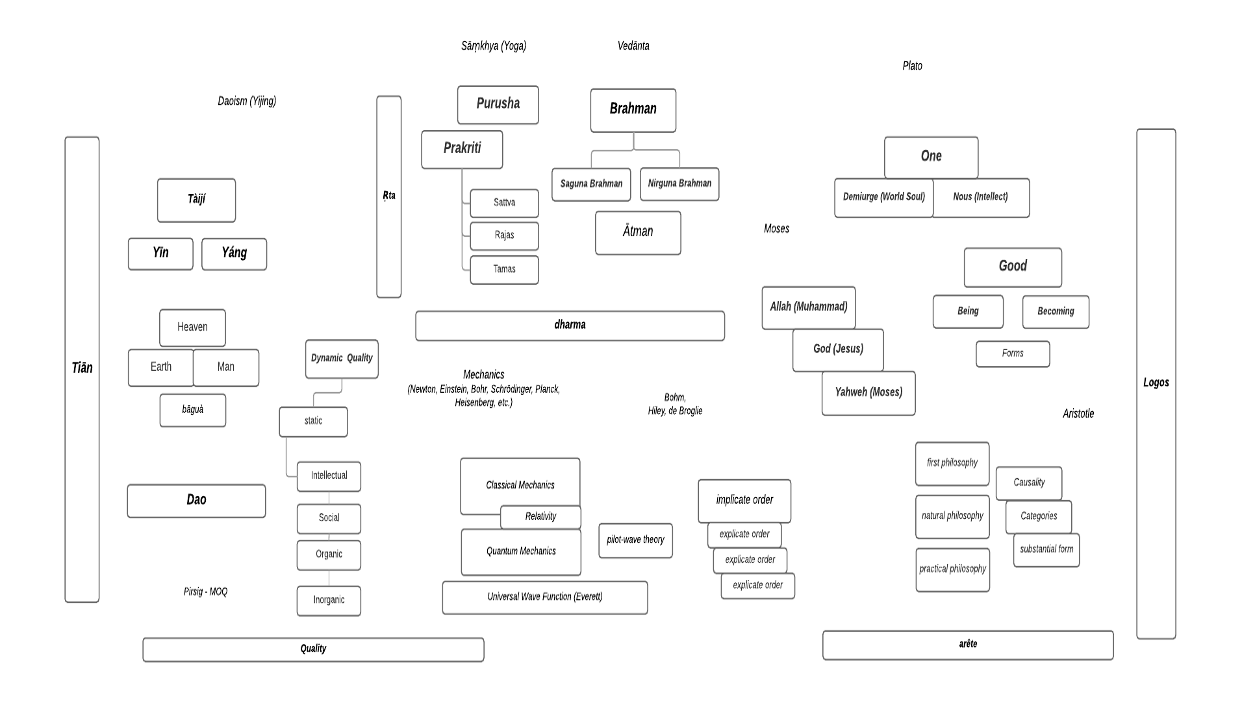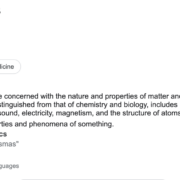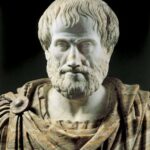The Import and Legacy of Immanuel Kant’s Philosophy
Kant as the Third Teacher
Immanuel Kant (1724-1804), the famous German philosopher and perhaps the most influential Western philosopher in the modern era, wrote at the end of the Enlightenment Era, and it is in fact from his works that the term “Enlightenment Era” comes from. Kant came from a fairly modest background and his family and education could be considered religious as well as scholastic, with a solid foundation of the classics in his education. Unlike Descartes, he was a tutor, teacher and academic throughout his entire professional career and his work output and dedication to his evolving and final maturing philosophical positions can be seen throughout his career.
The impetus of his work by all accounts appears to be his dissatisfaction with the philosophical traditions that had come before him, those that although done the world a great service by establishing the rational underpinnings that drove the Scientific Revolution[1] which helped upend the longstanding authority of the Church over intellectual thought which had held sway over academia for centuries, had nonetheless serious logical holes from his perspective, putting the study of theology itself – the existence of God and the Soul – as well as the ethics and its close cousin morality, in serious jeopardy from a philosophical perspective. For if reason itself was the only lens through which knowledge can be acquired, and his predecessors arguments which had attempted to establish not only the boundaries of knowledge but also the providence of God within this new rational faith, then a very distinct possible conclusion would not only be that God in fact did not and could not exist, but that if so then what would be the rational foundation of morality if in fact this was the case. The problem that Kant attempted to solve could be put quite succinctly as, “If knowledge itself, reality as it were, were solely constrained to the domain of the physical world, the world governed and observed by the human sensory apparatus, or that which could be deduced and empirically verified by scientific method, on what footing did that leave not only theology (God), but even ethics?”
In many respects Kant’s role and contributions to modern philosophy can be viewed as similar to Aristotle, who although rejected Plato’s idealism from an epistemological perspective nonetheless incorporated his doctrines as part of his overall intellectual framework as universals which although did not have existence in and of themselves nonetheless provided the underlying metaphysical framework for his physics and his conception of the materialistic world, the world governed by matter and causality – his doctrine of substantial form more or less. Aristotle’s position can be viewed as a hybrid, or perhaps better put, synthetic approach to that offered by the Skeptics who represented the Socratic idealist position and the materialists who were represented first by Democritus and then later by the Epicurean school, the latter of which although came after Aristotle were nonetheless influenced by him to no small degree and represented a more materialist bent than the Peripatetic school which Aristotle founded.
Kant’s philosophical contributions can also be looked at as an attempt to synthesize the two dominant philosophical streams that were prevalent during the Enlightenment Era which preceded him, rationalism and empiricism – roughly corresponding to the skeptic and materialistic streams of philosophy that were present in antiquity during the Hellenistic period. In fact Kant borrows some of the metaphysical, a priori assumptions that provide the grounding of his metaphysics from Aristotle directly (more on this topic below).
Empiricism generally speaking defines the boundaries of knowledge as that which can be perceived by our senses and can be proved by empirical, deductive evidence and data – the so-called physical, objective reality from which the doctrine of scientific method emerges. This position was reflected in the works and theories put forth by Enlightenment philosophers such as Locke, Hume, and Berkley for example. In this metaphysical framework, knowledge could be expanded upon from the basic facts regarding objective reality via a posteriori types of reasoning, logic, deduction, etc. – mathematics for example – but generally speaking it excluded theoretical, cognitive realities whose existence could not be empirically established.
The alternative, somewhat opposing intellectual position can be loosely categorized under the heading of rationalism, at the time as represented by the positions and works of Descartes, Spinoza, and Leibniz among others. Rationalism was characterized by a more expansive epistemological position that identified the boundaries of knowledge not just by what could be discerned or proved to be true about our objective, preceptory reality, but also by what could be reasonably believed to be true about the theoretical, or intellectual reality held to the standards of reason and logic – a position held quite firmly by Plato for example (his Ideas, Forms, Allegory of the Cave, etc.).
Rationalists general speaking, again like the Platonists to a large extent and even Aristotle to a lesser extent, believe in the a priori existence of certain principles that allow for intellectual understanding and comprehension of truths, out of which their definition of knowledge, epistemology, stems. Empiricists believe that knowledge and truth can only be ascertained by that which can be proven to physically exist, i.e. have empirical reality, or can be yielded or deducted from these basic physical realities. It is from the empiricists that we get our scientific method from and generally speaking this reflects the underlying philosophical and epistemological position of the Atheist community today as it did with the Epicureans in antiquity.
The problem Kant had with each of these positions was that he did not believe in the existence of either a) a priori knowledge which was possible through reason and logical deduction (or induction), or b) a posteriori knowledge independent of that tool from which perception and understanding itself took place – based upon experience or pre-existing associations for example. Hence he felt the need to reject both schools of thought and come up with a new philosophical foundation which he believed could reconcile science and theology in a way that he considered to be fully coherent, consistent, and rested on pure rational foundations. In a way his philosophical pursuits can be looked at as a search for what in fact, if anything, could be considered a priori from an intellectual or metaphysical perspective – an attempt at stripping away all possible preconceived notions on what could be said to truly exist and how Truth itself could be defined independent of the human condition.
The rationalists that came before Kant in particular believed that knowledge, truth, included the mental as well as the physical world, hence allowing for theological and moral precepts to coexist alongside natural philosophy which had begun to accelerate as an independent field and call into question long held beliefs that the world revolved around man and its planet Earth and that mankind held a special place in this universe. Kant rejected this position as well though, concluding that there was no grounds, at least based upon the philosophical systems of his predecessors, to give any epistemological significance to the realm of ideas to which the concepts of Soul or God belonged.
One of the cornerstones of Kant’s philosophical system was that it rested upon the basic assumption of human autonomy, i.e. the reality of the world of “appearances” over what might be termed “objective reality” and the presumption somewhat in line with Descartes in a sense that one can assume nothing about the true existence of anything outside of the individual mind and its sensory perceptive faculties – the act of perception, cognition, understanding, and ultimately judgment providing the building blocks of his philosophical system upon which he subsumes and supersedes both the empiricist and rationalist perspectives.
Kant’s “Copernican Philosophical Revolution”
Kant’s contribution to modern philosophy then was to deny the same status of existence of the intelligible world – the world of mental constructs and abstractions upon which any theology must be constructed (Plato’s’ Forms in a broader sense) – as to the natural, material world. On first glance this might appear to be a step backward from a philosophical standpoint, pushing ideology and theology further into the backdrops of philosophical heretics, but this was precisely the problem he was trying to solve in fact. He was trying to make room for, and put on just as firm footing in fact, the existence of the divine and ethics in general alongside the field of natural philosophy, and in order to do that, the cognitive faculty – Reason – had to become the first ontological principle from which knowledge and truth were discerned, hence providing the basic building block and intellectual bridge between the material world (natural philosophy) as well as the idealistic world (morality and ethics, i.e. practical philosophy).
Hitherto it has been assumed that all our knowledge must conform to objects. But all attempts to extend our knowledge of objects by establishing something in regard to them a priori, by means of concepts, have, on this assumption, ended in failure. We must therefore make trial whether we may not have more success in the tasks of metaphysics, if we suppose that objects must conform to our knowledge. This would agree better with what is desired, namely, that it should be possible to have knowledge of objects a priori, determining something in regard to them prior to their being given. We should then be proceeding precisely on the lines of Copernicus’ primary hypothesis. Failing of satisfactory progress in explaining the movements of the heavenly bodies on the supposition that they all revolved round the spectator, he tried whether he might not have better success if he made the spectator to revolve and the stars to remain at rest. A similar experiment can be tried in metaphysics, as regards the intuition of objects. If intuition must conform to the constitution of the objects, I do not see how we could know anything of the latter a priori; but if the object (as object of the senses) must conform to the constitution of our faculty of intuition, I have no difficulty in conceiving such a possibility. Since I cannot rest in these intuitions if they are to become known, but must relate them as representations to something as their object, and determine this latter through them, either I must assume that the concepts, by means of which I obtain this determination, conform to the object, or else I assume that the objects, or what is the same thing, that the experience in which alone, as given objects, they can be known, conform to the concepts. In the former case, I am again in the same perplexity as to how I can know anything a priori in regard to the objects. In the latter case the outlook is more hopeful. For experience is itself a species of knowledge which involves understanding; and understanding has rules which I must pre- suppose as being in me prior to objects being given to me, and therefore as being a priori. They find expression in a priori concepts to which all objects of experience necessarily conform, and with which they must agree. As regards objects which are thought solely through reason, and indeed as necessary, but which can never — at least not in the manner in which reason thinks them — be given in experience, the attempts at thinking them (for they must admit of being thought) will furnish an excellent touchstone of what we are adopting as our new method of thought, namely, that we can know a priori of things only what we ourselves put into them.[2]
His strategy philosophically then, which he refers to somewhat dramatically as a Copernican philosophical revolution, is to search for what if any a priori concepts can truly be found to exist, concluding that it is impossible to conceive of any a priori conceptual building blocks if one assumes that the material world is ontologically primary. If however, one places cognition itself as the primary ontological and metaphysical building block, one can come up with a priori concepts that provide coherence to an objective reality, constructs that are byproducts of our cognitive, rational faculties. One he switches this perspective, he is able to establish objective reality but at the same time establish basic principles which govern this reality which are not real in and of themselves, or at least real in the sense that a table or a rock are real, but nonetheless without which natural philosophy, science, lacks meaning. To this end he concludes that our perception of this materialistic physical reality is structured in accordance with certain categories, very much aligned with Aristotle’s conception of Categories with some subtle variations – characteristics such as Quantity, Quality, Relation or Modality[3].
To Kant, a category represented a function of and was intrinsically tied to the understanding faculty of the human cognitive faculty, representing a quality of any object that exists independent of consciousness or perception and independent of experience in general. Categories then, as they were for Aristotle more than two thousand years prior, were the metaphysical bridge between the materialists and the idealists – or in Enlightenment terms the empiricists and the rationalists. They are not classifications or qualities of a physical object per se as the world is used in modern nomenclature today, but a necessary condition of the existence of any object at all. Kant called them “ontological predicates”. Kant posited that the intellectual unity reflected in apperception (Leibniz’s term) is brought about and facilitated by Judgment which in turn employs categories to provide the foundations of understanding of anything. These (12) Categories to Kant were prerequisites to the synthesis of our experience of the objective realm.
His three main works that represent his philosophical solution to what he perceived to be lacking in the philosophical and metaphysical systems put forth by his predecessors, were all authored at the height of his teaching and academic career starting with the Critique of Pure Reason which was first published first in 1781 and then again in 1787 which covered metaphysics proper (again, theoretical philosophy), followed by the Critique of Practical Reason published in 1788 which covered his metaphysics of morals (practical philosophy), and then his final work which he believed was the last word on the subject, the Critique of the Power of Judgment published in 1790 which attempted to establish the rationale for the belief in an underlying purpose to life and the existence of the universe (teleology).
In his final work, Kant introduces a third unique aspect of human cognition, judgment, which provided for the synthesizing and overarching intellectual and metaphysical framework which bridged the metaphysics of the other two aspects of human cognition covered in his first two works – namely the sensible (perception or Leibniz’s term apperception) and understanding (intellect), the former of which is constrained by the material world and the latter of which is constrained by the intelligible world (world of Plato’s Ideas/Forms).
Kant’s so-called Copernican philosophical revolution was to conclude that the structure of our experience as determined by our intellectual faculties themselves which in turn determine the validity and truth, empirical reality, of natural phenomenon rather than the objective world existing independent of any act of cognition or understanding itself. This perspective allowed for the epistemological “reality” of the natural world but put the mind, cognition and human perception front and center as the basis for the structure of this empirical reality, the structure of our perception of objective phenomenal reality resting squarely on the a priori aspects of Mind itself, out of which the laws of physics must in turn rest on.
In the Critique of Pure Reason, Kant argues that the human understanding (intellect) is the source of the laws of nature (physics), i.e. that these laws themselves are a product of our intellect. He surmises that the mind is not tabula rasa, a clean slate, but yet at the same time a priori knowledge is not possible of the natural world which “appears” to be independent of us. Although he confines knowledge to natural philosophy, empirical science, and mathematics he is emphatic in concluding that mind makes nature and not the other way around and that its Impossible to extend knowledge to supernatural, super sensual world, outside of the conditions of our own experience. Kant’s investigation resulted in his claim that the real world of experience can only be an “appearance” or “phenomenon”, what things are in and of themselves, other than being appearances (or noumenon), is completely unknowable by any animal or human mind.
In his Critique of Practical Reason he argues that morality does indeed stand on the same pure rational and logical foundations as does theoretical philosophy, once one discerns and extracts Reason itself from natural philosophy and establishes the a priori notions which govern it, even if practical philosophy in and of itself has no grounding in objective reality as bound by his theoretical philosophy. That is, that morality, ethics was the product of pure reason itself, is a byproduct of us being rational beings, and in fact is predicated on the belief in the immortality of the Soul, God, and the possibility of what he calls the “highest good”, a theoretical reality where all rational beings behave according to perfect morality, i.e. are perfectly rational.
Kantian Ethics and Teleology
His Critique of Practical Philosophy deals with how world ought to be versus how it actually is and therein he establishes his metaphysics of morals. For one of the other hallmarks of Kant’s philosophy on both the theoretical (metaphysics) as well as practical (ethics) fronts is the basic assumption of human autonomy, that the reality of the world of “appearances”, his theoretical philosophy, as well as his metaphysics of morals, his practical philosophy, should and are constructed presuming nothing outside of the individual – their senses, the act of perception, cognition and understanding, and the power of judgment which provides for a teleological foundation of existence that again, although cannot be said to exist in and of itself, provides an underlying meaning to our lives which serves the purpose of unifying ethics and physics. His practical philosophy therefore was guided by the same principal, i.e. based upon the presumption that one can establish a moral and ethical behavioral foundation for oneself without any exterior forces necessary. To Kant, the only intrinsically good thing is good will, or intention, moral law being the will of rational agents based upon a pure rational foundation.
Kant develops a notion of a categorical imperative based on notion of universality upon which all actions of an individual, of a rational individual, should be based. In other words if an individual is governed by reason, each action should be judged according to the standard where if everyone were to act in such a way would it be good for society at large and would the act itself still have its implied meaning – for example telling the truth or promises, if people were to not behave this way, were to lie to each other, the fabric of society would not hold together. If an action when universalized makes sense so to speak, then it is inherently moral or ethical, Good, and if everyone behaved perfectly rational the world would be transformed into the greatest of all worlds, Kant’s perfect world akin to the utopia of Plato. To Kant, the highest good is virtue as well as happiness, the latter depending upon the former and the former dictated by Reason, the same standard which he uses to establish his epistemological foundations.
In Kant’s view, objective rational laws necessitate rational actions and the perfect rational man must behave in a perfectly moral manner, similar in many respects to Stoicism from an ethical perspective. Therefore there exists a collective good element of perfect, morally sound, actions, which rely on his principal of universality as the definition of the perfect Good. The theological conclusions he draws are that even though no a priori knowledge of God or the Soul is possible, they do serve a very practical value as if these beliefs did not exist there would be no metaphysical foundation for ethics and therefore society at large would break down and there would be anarchy or chaos. Morality then, in this framework, depends upon the existence of free will as well as immortality and the existence of God – these are morally necessary postulates, i.e. rational prerequisites to morality.
In other words, a belief in a perfect world, what he calls the highest good, is a prerequisite for moral behavior and actions. Hence his categorical imperative which is dictated by pure reason where morality functions as a result of being rational, from which ultimately all duties and obligations as a human being and member of society derive. Categorical imperatives are absolute, unconditional requirements that must be obeyed in all circumstances, i.e. acting according to the maxim of universalization which is based upon pure reason, in contract to hypothetical imperatives such as acting to quench one’s thirst or to acquire knowledge and understanding for example which are more subjectively defined. Kant’s ethics therefore is based upon duty which is a byproduct of us being rational beings.
To connect his practical and theoretical philosophical systems Kant established the supremacy of the cognitive faculty of judgment, the exploration of which is covered in Critique of Pure Judgment. Here he links the world of understanding and appearances which are covered in his theoretical philosophical system (how the world actually is and is governed by the faculty of understanding) and the world of morality and ethics which he outlines in his practical philosophy (how the world ought to be which is governed by reason) with the power of judgment, which sits atop both understanding and reason and provides meaning to our existence. It is through the power of judgment that we conclude that there is a purpose to life (teleology) and that God exists from which our source of moral and religious beliefs ultimately derive. The existence of God is not a fact in and of itself, as is true with the meaning of life (again, teleology), but these presumptions serve to guide human behavior and provide a metaphysical and philosophical means to a better world. Belief in an underlying purpose to the world, which presupposes some sort of intelligent design, serves a purpose for humanity be it true or not. Judgment therefore connects Kant’s theoretical and practical philosophical frameworks despite the epistemological divide between the two.
Kant’s Legacy: Transcendental Idealism
Kant’s philosophical position has come to be known as transcendental idealism, positing that the human experience of things, objects of reality, are a function of how these things “appear” to us, making the human mind, the navigator and charioteer of the perceptory process, as the definer of the rules of the game so to speak rather than declaring the existence of things in an absolute sense outside of this realm of mind. That doesn’t necessarily mean that there is a physical reality that does not in fact exist independent of our observation of said reality, (although this point is debated among interpreters of Kant’s theory), but that from our perspective the existence of this independent reality has no meaning and no bearing on us as individual members of society and as individual human beings Because our reality, everything we understand, comprehend, perceive using our mind and intellect and our power to understand, is predicated upon the metaphysical foundations of our mind itself, from which the ideas of time, space, depth etc. stem from – not the other way around hence his analogy of the Copernican revolution of philosophy.
By transcendental idealism I mean the doctrine that appearances are to be regarded as being, one and all, representations only, not things in themselves, and that time and space are therefore only sensible forms of our intuition, not determinations given as existing by themselves, nor conditions of objects viewed as things in themselves. To this idealism there is opposed a transcendental realism which regards time and space as something given in themselves, independently of our sensibility. The transcendental realist thus interprets outer appearances (their reality being taken as granted) as things-in-themselves, which exist independently of us and of our sensibility, and which are therefore outside us — the phrase ‘outside us’ being interpreted in conformity with pure concepts of understanding. It is, in fact, this transcendental realist who afterwards plays the part of empirical idealist. After wrongly supposing that objects of the senses, if they are to be external, must have an existence by themselves, and independently of the senses, he finds that, judged from this point of view, all our sensuous representations are inadequate to establish their reality. The transcendental idealist, on the other hand, may be an empirical realist or, as he is called, a dualist; that is, he may admit the existence of matter without going outside his mere self-consciousness, or assuming anything more than the certainty of his representations, that is, the cogito, ergo sum. For he considers this matter and even its inner possibility to be appearance merely; and appearance, if separated from our sensibility, is nothing. Matter is with him, therefore, only a species of representations (intuition), which are called external, not as standing in relation to objects in themselves external, but because they relate perceptions to the space in which all things are external to one another, while yet the space itself is in us. [4]
In perhaps one of the most famous and lasting quotations attributed to Kant he says, “I had to deny knowledge to make room for faith”, providing perhaps the most succinct rationale behind his entire philosophical enterprise which represents his life’s work and has left such a lasting impact on the West. He can be looked at as a Platonist to some extent given the skepticism that underlies his theoretical philosophy but yet at the same time he does not explicitly deny the existence of the material world, he simply (or perhaps not so simply) predicates its existence upon the cognitive capabilities of man, which when fully explored and mapped out also provide the framework within which a belief in God and the Soul, and ethics and morals, all hang together in a coherent system of metaphysics.
Reason then, a function of Mind, can give us the foundation of morality and theology as well as science, allowing for the existence of God and the Soul, without them having to rest on empirical and/or scientifically based proofs. This approach, to Kant at least, was unique in that it allowed for science and religion to co-exist not on the same empirical foundations which were the hallmark of the Enlightenment Era, but whose existence could be established by using the same fundamental tool that was the hallmark of the Enlightenment Era, namely reason itself.
[1] The Scientific Revolution is an historical period which is classically bound by modern historians by Copernicus’s publication of De revolutionibus orbium coelestium (On the Revolutions of the Heavenly Spheres) in 1543 and ends with Newton’s publication of Philosophiæ Naturalis Principia Mathematica (Mathematical Principles of Natural Philosophy) in 1687.
[2] Immanuel Kant, Critique of Pure Reason, Preface to the Second Edition, Bxvi, xvii). From http://staffweb.hkbu.edu.hk/ppp/cpr/prefs.html, pgs. 23-24.
[3] Aristotle’s categories enumerated all the possible kinds of things that can be the subject or the predicate of a proposition, providing a semantic and logical underpinning to the notion. He placed every object of human apprehension under one of ten categories; substance or essence, (ousia), quantity or how much (poson), qualification or quality (poion), relative or relation (pros ti), where or place (pou), when or time (pote), being-in-a-position, posture, attitude (keisthai), having a state, condition (echein), doing or action (poiein), and being affected or affection (paschein).
[4] Immanuel Kant, Critique of Pure Reason. From http://staffweb.hkbu.edu.hk/ppp/cpr/prefs.html – pgs. 345-346.









That was a good read. Intending to re-read critique of pure reason again very soon. Reading this has gotten my quite excited for that undertaking!
Kant is an acquired taste for sure but the more one digs in the better it gets. thx for the note.
” Critique of Pure Reason( A383): Cf. Kant ‘—– if I were to take away the thinking subject, the whole corporeal world would have to disappear, as this is nothing but the appearance in the sensibility of our subject and one mode of its representations.”
Do you yourself agree with what Kant is saying here?
Not in the precise way that he says it there, but basically yes.
That is to say, his basic postulate (his so-called Copernican revolution in philosophy) that our knowledge – be it of empirical, objective reality or of rational, eternal truths – is fundamentally dependent upon our cognitive faculties through which anything at all is experienced seems to be not only a necessary condition for the establishment of truth and the existence of any a priori knowledge at all about the word, but also reasonable in and of itself to assume that our world is dependent upon the human mind through which it is experienced.
Its almost akin to the famous philosophical question, “if a tree falls in the forest and no one hears it did it actually fall?”. Kant is saying quite definitively no, it didn’t – at least “definitionally” even if in actuality it did, given that we are trying to form opinions related to the truth, or fundamental characteristics of the tree, how we perceive it is not only important but in fact from an epistemological perspective absolutely fundamental and necessary.
“Not in the precise way that he says it there”
Why not? What are your objections?
Please, I want to say to you that when I ask you questions, I am not disagreeing or agreeing with you, I am only exploring the subject. I am interested in trying to know what is true and what is not.
With good wishes.
O.R.
Yes O.R. – my issues with Kant, which are keenly reflected in the quote you provided which summarizes his philosophy quite nicely, are in what you might call his ontological orthodoxy. In other words, while epistemologically speaking his position seems plausible, but ontologically speaking, the idea that things have no existence in and of themselves outside of the mind, I find a little hard to swallow. Kind of like that whole tree falling in the forest quandary…
” the idea that things have no existence in and of themselves outside of the mind, I find a little hard to swallow.”
This is the most important point.
I think that Kant says that things like a table, a chair, Sun and Moon etc. have no existence outside the mind of the perceiver, these are merely percepts in the mind of the perceiver. What actually exists outside the mind is something unknown (noumenon?). When a human mind perceives this unknown reality(noumenon?) through the limited capacity of a human mind, then that unknown reality is perceived as a table or Sun and Moon etc and not as it really is. In other words. it is like seeing something through a prism or lens.
Kant does not say that nothing exists outside of the mind, he merely says that what humans perceive to be existing outside of the mind, that does not exist.
Your criticism?
A note: Hume also expresses a similar idea. I will give you exactly where he says this and his language after looking what exactly he wrote.
Cheers.
yes, and thanks for taking the time to clarify. My criticism is not necessarily with any of his assertions or any of his rational deductions really, i just think that his metaphysics in and of itself is fairly limiting. I provide an alternative model, an alternative metaphysics, that extends Kant’s in my latest book actually. I will try and publish the pertinent material here soon so you can take a look at it.
regards
– JV
Here it is: https://www.gutenberg.org/files/9662/9662-h/9662-h.htm#section12
118. It seems evident, that men are carried, by a natural instinct or prepossession, to repose faith in their senses; and that, without any reasoning, or even almost before the use of reason, we always suppose an external universe, which depends not on our perception, but would exist, though we and every sensible creature were absent or annihilated. Even the animal creation are governed by a like opinion, and preserve this belief of external objects, in all their thoughts, designs, and actions.
It seems also evident, that, when men follow this blind and powerful instinct of nature, they always suppose the very images, presented by the senses, to be the external objects, and never entertain any suspicion, that the one are nothing but representations of the other. This very table, which we see white, and which we feel hard, is believed to exist, independent of our perception, and to be something external to our mind, which perceives it. Our presence bestows not being on it: our absence does not annihilate it. It preserves its existence uniform and entire, independent of the situation of intelligent beings, who perceive or contemplate it.
But this universal and primary opinion of all men is soon destroyed by the slightest philosophy, which teaches us, that nothing can ever be present to the mind but an image or perception, and that the senses are only the inlets, through which these images are conveyed, without being able to produce any immediate intercourse between the mind and the object. The table, which we see, seems to diminish, as we remove farther from it: but the real table, which exists independent of us, suffers no alteration: it was, therefore, nothing but its image, which was present to the mind. These are the obvious dictates of reason; and no man, who reflects, ever doubted, that the existences, which we consider, when we say, this house and that tree, are nothing but perceptions in the mind, and fleeting copies or representations of other existences, which remain uniform and independent.
The Project Gutenberg eBook of An Enquiry Concerning Human Understanding, by David Hume.
It’s the reductionist perspective in general that I take issue with – which can be seen with Hume and with Kant, and is endemic to the Western philosophical system as a whole arguably. It never occurs to them, or perhaps better put they never considered, a philosophical system – a metaphysics – where the experience itself, taken holistically, is the ground of knowledge – the subject, the object and the act of perception all participating in the experience and contributing to it.
A change in perspective from Kant’s subjectivism to what I am calling Awareness. Again I go into this new metaphysics at length in my latest work and I will publish the relevant excerpts here shortly so you can take a look and let me know what you think.
Regards
– JV
O.K. Looking forward to it.